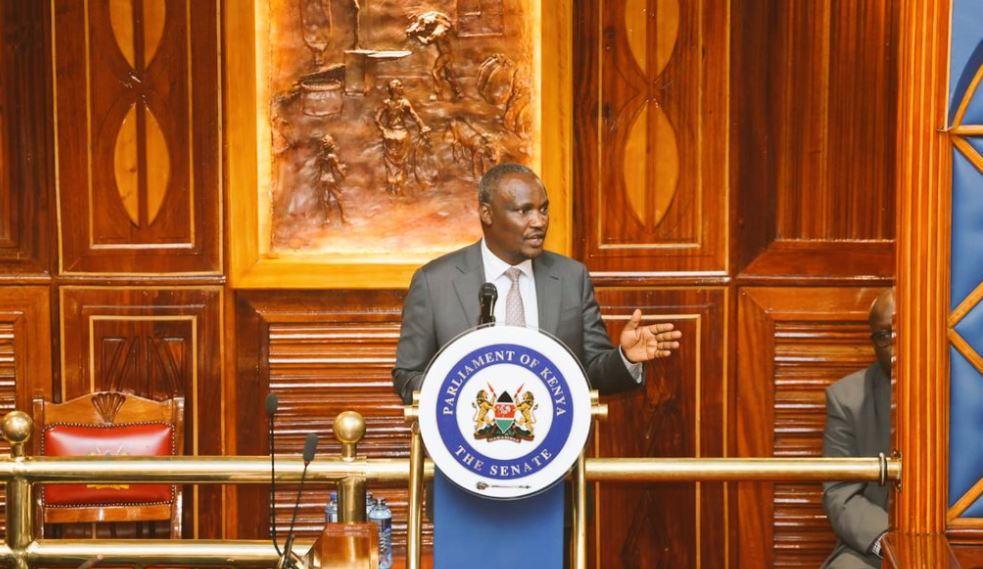 Treasury Cabinet Secretary John Mbadi has revealed that the government had initially planned to lower Pay As You Earn (PAYE), the individual income tax, in the upcoming financial year. This move could have brought significant relief to salaried Kenyans.
Treasury Cabinet Secretary John Mbadi has revealed that the government had initially planned to lower Pay As You Earn (PAYE), the individual income tax, in the upcoming financial year. This move could have brought significant relief to salaried Kenyans.
However, that plan was put on hold after the Kenya Revenue Authority (KRA) failed to meet its revenue collection targets.
Speaking before the Senate on Wednesday, June 4, Mbadi explained that while the tax reduction was part of the Finance Bill deliberations, the government ultimately decided it could not proceed without first stabilizing revenue performance.
“When we were preparing the Finance Bill, we also did some simulation on how to reduce PAYE,” he explained. “But what stopped us from implementing it with this Finance Bill alongside the Corporate Tax was the failure by KRA to meet its revenue targets.”
Mbadi added that it would be unwise to initiate multiple major fiscal changes simultaneously. “We thought that as we carry out reforms at KRA, we should not be doing many things at the same time. First, let us see what the reforms at KRA are doing for us in terms of automation, then we can move to the next step,” he added.
Still, he reassured that the government remains committed to the idea and will consider reintroducing the PAYE cut in the next financial cycle.
In addition to income tax, the Treasury is also reviewing the Housing Levy, which currently deducts 1.5 percent from employees’ monthly salaries. According to Mbadi, the government is exploring ways to restructure the levy following rising concerns from workers and stakeholders, including the Federation of Kenya Employers (FKE).
On the Housing Levy, there are already discussions on how to restructure it because, in my view, it has serious benefits as many projects are coming up,” Mbadi said. “But at the same time, the individual employees have complaints that you cannot ignore.”
He hinted that changes to the levy could be announced soon. “A lot of restructuring is going on, and I am sure more pronouncements will come in due course,” he added.
FKE has been vocal about the need to reduce the levy, proposing a rate cut from 1.5 percent to 0.5 percent. According to the federation, this would ease the tax burden on workers, boost disposable income, and improve the competitiveness of Kenyan businesses.